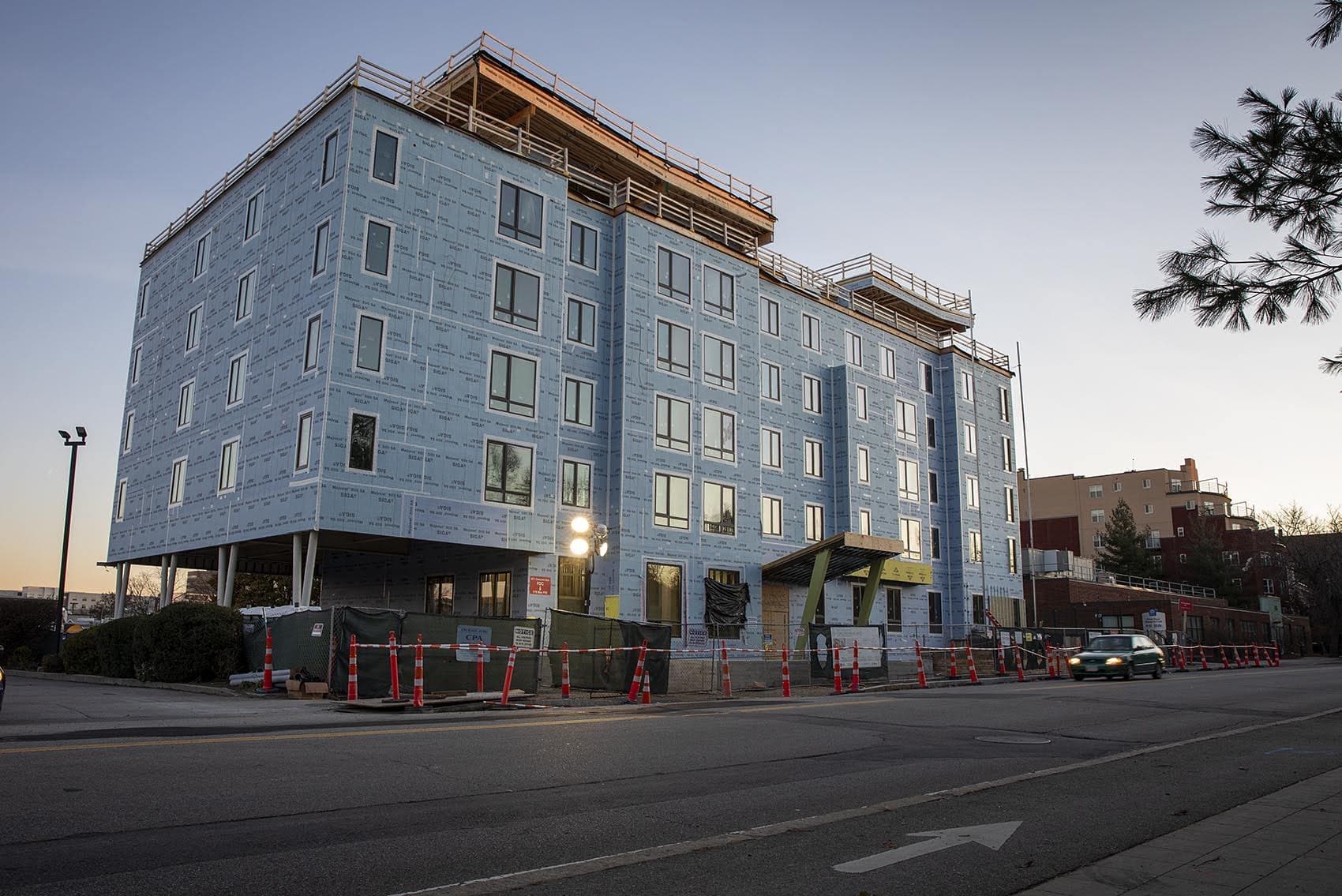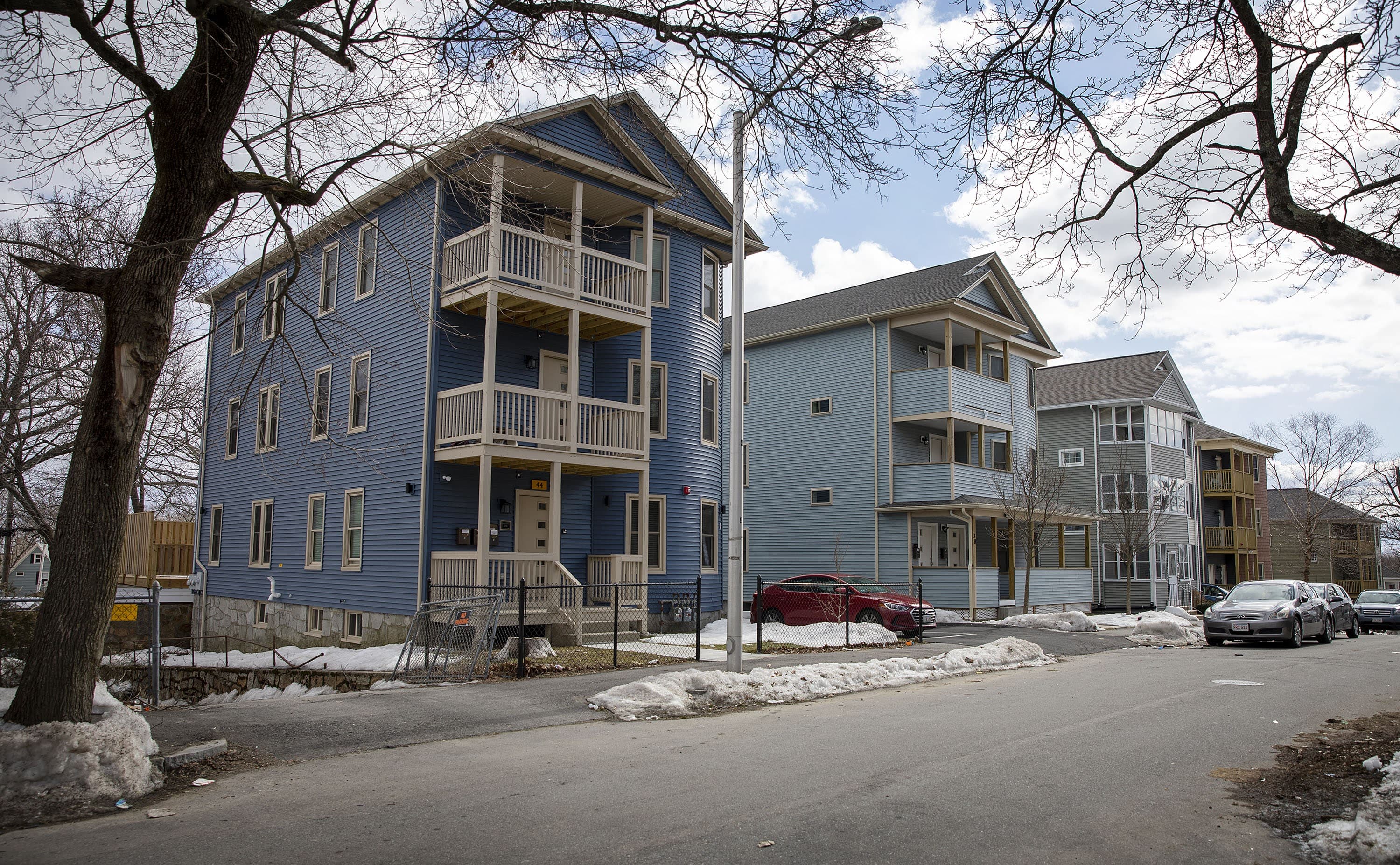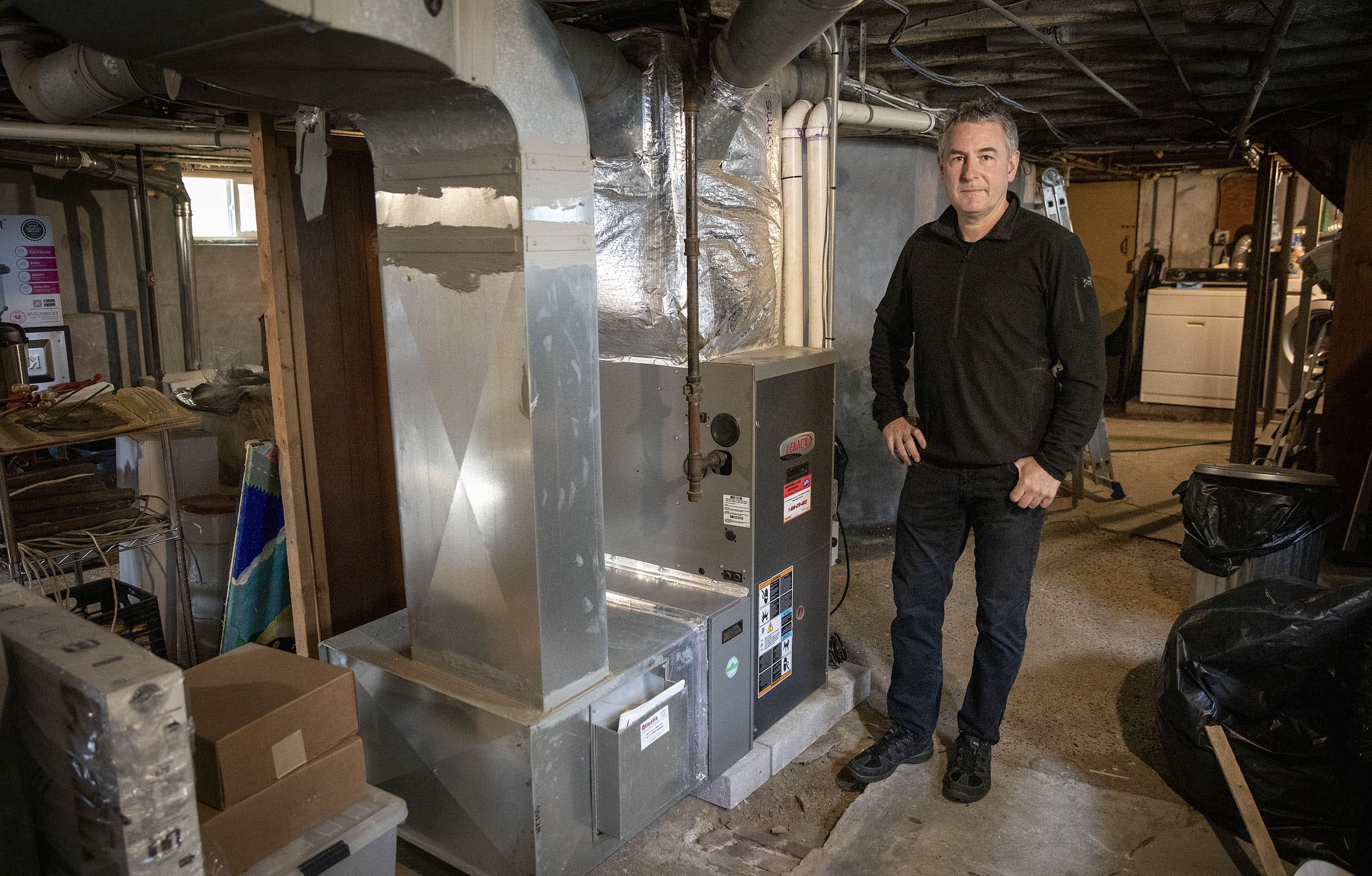Advertisement
A $300 million idea to equitably 'jumpstart' a climate-friendly building revolution in Mass.

A broad coalition of environmental, housing and education advocacy groups say they have a plan to help Massachusetts meet one of its most challenging climate goals: “decarbonizing,” or dramatically reducing carbon emissions, from buildings in the state.
The idea is fairly straightforward. The groups are asking the legislature to set aside $300 million from the state’s remaining federal COVID-19 relief funds to help retrofit affordable and public housing units, schools, libraries and other municipal buildings. If established, the money in the “Zero Carbon Renovation Fund” would be managed by the Massachusetts Clean Energy Center and could be used for things like swapping out fossil-fuel based heating and cooking systems for electric ones, improving energy efficiency in buildings with insulation and new windows, or even helping with the cost of rooftop solar panels.
“Retrofits are a priority concern for the Commonwealth,” says Logan Malik, interim executive director of the Massachusetts Climate Action Network, one of the groups pushing for the fund. “And the challenge, to be frank, is fairly daunting when we look at what's ahead in order for us to meet our legally mandated goals.”
While the main purpose of the fund is to help “jumpstart” the massive transformation by “creating the carrot to pull the market towards making the right decisions,” he says, the benefits will extend beyond emissions reductions. Building retrofits can also help lower energy bills, improve climate resilience against extreme heat and cold, and improve health outcomes by lowering indoor air pollution.
The idea of a Zero Carbon Renovation Fund isn't new. Advocates tried to get the legislature to allocate the money during the 2022 legislative session, but it didn't gain traction. In the months since, Malik says they've regrouped, expanded their coalition and are working to bring key lawmakers on board for another big push in 2023.
“We are committed to transitioning our buildings from polluters to protectors of our health, of our communities and of our climate,” he says.
How big is the building decarbonization challenge?
When you think about carbon emissions, you probably think about power plants and vehicles. But the 2 million buildings in Massachusetts collectively emit about 30% of the state’s total emissions, mostly from the gas or oil used in heating and cooking.
Achieving the state’s legally binding climate goal of net zero emissions by mid-century requires big changes across the economy. When it comes to residential and commercial buildings, this means reducing emissions 28% below 1990 levels by 2025, 47% by 2030 and 95% by 2050.
For context, in 2020, building emissions had fallen by about 18%, meaning there is a lot of work to do over the next few years.
To give a sense of the scale of change required, a recent report about building decarbonization from the state’s Clean Heat Commission says Massachusetts will need to retrofit 500,000 homes and 300 million square feet of commercial buildings by 2030.
To achieve this, the state will need to transform 20,000-25,000 homes per year until 2025, and then scale up to 80,000 homes per year by 2030. According to a new state dashboard, about 33,000 homes installed electric heat pumps in 2020 and 2021 — so the pace of change must accelerate.
“This is a real time of opportunity and of urgency, and we need to take advantage of that before it's too late and before we don't have an opportunity to really meet the climate goals,” Malik says.
But building decarbonization is a particularly tall order in part because there’s no single government intervention that can solve it. It will require millions of people to make individual decisions about the appliances and materials in their homes or workplaces. And it will be incredibly expensive.
Even with state and federal subsidies, the types of retrofits required are often out of reach for many residents in the state or municipalities looking to renovate public buildings on a tight budget — decarbonizing an apartment or single family home can cost upwards of $30,000.

Depending on how the Zero Carbon Renovation Fund is administered, it may not cover the full cost of an upgrade, but it certainly could help, says Kristina St. Cyr of the Massachusetts Association of Community Development Corporations, an organization of community development groups, many of which build and manage affordable housing units.
“We really cannot meet our climate and emission reduction targets without decarbonizing our affordable housing stock. And we cannot decarbonize our affordable housing stock and maintain its affordability without a source of funding that's dedicated to making these improvements,” she says.
Targeting affordable housing units and environmental justice neighborhoods for retrofits could also have the added benefit of improving indoor air quality and long-standing health disparities.
“Affordable housing units are disproportionately home to people of color, and we know that these same populations suffer disproportionately from poor health outcomes,” says St. Cyr. “Prioritizing these homes for decarbonization efforts is a way to prioritize the health and well-being of residents who for too long have been left behind.”
Schools, especially those in lower-income neighborhoods, also face big decarbonization hurdles and could benefit from financial assistance. Sara Ross, co-founder of the group Undaunted K12, says the majority of school buildings in the state heat with fossil fuels, and many also lack any system for cooling.
“School buildings in Massachusetts already reflect patterns of inequity due to our funding formulas,” she says. “Climate change is going to widen those gaps unless we focus resources on the most vulnerable.”
To give an example of how the fund could be used, Ross says a school that is looking to upgrade its heating system or install a cooling system could tap into this money to help defray the added costs of installing a heat pump instead. The money could also be used to help pay for solar panels, which would reduce the cost of heating and cooling the building.
“Our school buildings are not in any way prepared for climate change, and students and communities suffer the consequences,” Ross says. But “school buildings could be a marquee building type as the state attempts to achieve [its 2030] goal,” she says.

Is $300 million enough?
In short, no.
Advocates of the Zero Carbon Building Fund readily admit this, but say they see this money as a downpayment.
“We need to rapidly begin completing hundreds of zero carbon renovations on dozens of building types, from single family homes to triple deckers to large low-rise multifamily buildings to large high-rise multifamily buildings to municipal buildings including schools, libraries, community centers, town halls, and more,” says Hank Keating, an architect and president of the group Passive House Massachusetts.
Different buildings will require different renovation and construction approaches, so targeting a variety of buildings with the money will help designers, contractors and state officials figure out what they need to do to scale-up, he says. And in the meantime, “our view is that $300 million is capable of producing some real results with real benefits for residents across the state.”
